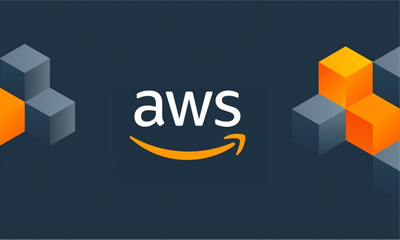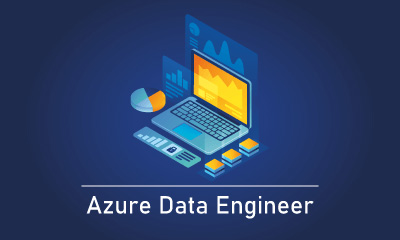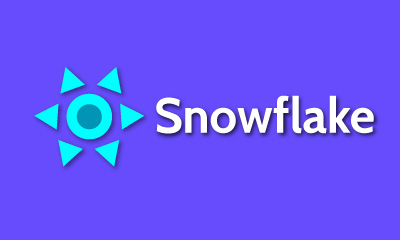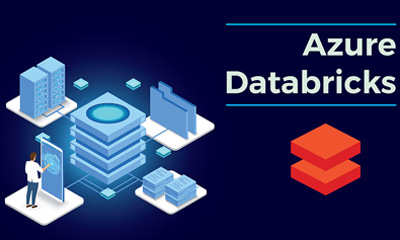Snowflake
RBCloudGenX’s Snowflake training Online is aligned with the latest curriculum of the Snowflake certification exam. Our Snowflake certification online training course includes basic concepts and features to make you proficient in this cloud-based tool.
Course Rating :
4.8 (926)

Course Overview
RBCloudGenX’s Snowflake training Online is aligned with the latest curriculum of the Snowflake certification exam. Our Snowflake certification online training course includes basic concepts and features to make you proficient in this cloud-based tool. This training will also help you build a data architecture, collect data, identify patterns, create models, and build data pipelines in Snowflake. Upon successful completion of our Snowflake certification training, participants can apply for roles such as Snowflake Developer, Data Analyst, and Snowflake Data Engineer positions in any industry.
Snowflake is the most popular cloud-based data tool and it has become popular among IT professionals. Backed by a team of experienced trainers, RBCloudGenX helps you learn the basic and advanced concepts of this cloud-based data tool. You can learn how to use Snowflake to handle and organize a large data bank.
RBCloudGenX’s Snowflake course online is designed by industry experts to meet the needs of individuals at various levels of expertise who are interested in gaining knowledge in the field of data warehousing. Whether you are a beginner looking to acquire fundamental skills or an experienced professional aiming to enhance your expertise in data analytics and warehouse capabilities, our Snowflake online training program is tailored to meet all your needs. Additionally, you will gain a thorough knowledge of query constructs, managing and monitoring Snowflake accounts, DDL & DML operations, and Snowflake’s continuous data protection methods.
Key Points
In this snowflake online certification course, you will gain end-to-end practical knowledge of below concepts.
- Snowflake Architecture
- Data loading and transformation
- SQL operations
- Query constructs
- DDL and DML commands
- Snowflake Interview preparation, and Mock interview sessions
- Continuous data protection by using Snowflake techniques
- Working with semi-structured methods and best practices to follow.
- Managing and monitoring Snowflake accounts
- Scaling methodologies to achieve concurrency and high performance.
- Snowflake Data sharing
Course Curriculum
- Snowflake Overview
- Architecture
- How to use the Snowflake UI & ecosystem
- What is Cloud
- Different Cloud Vendors
- Advantages of Cloud over On-Premise
- What is a Data Warehouse, and Why do we need a Data Warehouse?
- Database Vs Data Warehouse.
- Data Warehouse Architecture
- OLTP Vs OLAP
- What is ETL
- How different from traditional DB
- Quick start to the snowflake and accessing trial account
- Creating warehouse, DB, Schema, and tables
- Accessing different roles and using it
- Working with worksheets
- Understanding different type of accounts
- AWS and understanding S3 storage
- Snowflake architecture and caching
- AZURE and understanding blob storage
- GCP and understanding Bucket storage
- File formats
- Internal and external storage
- Internal and external stage
- Copy into usage
- Snowflake internal storage
- Accessing Cloud storage data into Snowflake (GCP, AZURE and AWS)
- Data unloading
- Accessing Snowpipe
- PUT and GET commands
- Bulk loading from cloud storage
- Continuous loading
- Snowflake Connector and use cases Python
- BI connectors use cases
- Other connectors hands-on
- Variant Data Type
- File format options
- Creating stages
- Loading JSON semi-structured data into SF tables
- Accessing JSON with select statement
- Creating Tasks
- Streams
- Accessing procedures with tasks
- Scheduling as per time with Different time zones
- Automate loading process Daily and Weekly
- Usage of sharing data
- Sharing data with different accounts
- Sharing data with non-SF accounts using reader accounts
- Importance of reader accounts
- Privileges in data sharing
- Challenges with cross-region sharing and understanding replication
- Connecting shared objects with BI tools
- Limitations with Data sharing
- Access Control Privileges for Cloned Objects.
- Cloning and Snowflake Objects
- Impact of DDL on Cloning
- Impact of DML and Data Retention on Cloning
- Introduction to Time Travel
- Querying Historical Data
- Enabling and Disabling Time Travel
- Data Retention Period
- Cloning Using Time Travel (Databases, Schemas, and Tables Only)
- Creating multi-users on large tables
- Performance techniques
- Result set cache
- Metadata cache
- Query data cache
- Best practices of using caching for performance and cost optimization
- Error Handling and Validations
- Snowflake Pricing model and selecting best Edition and Calculation of Credits usage
- Resource Monitoring
- Data Masking
- Partitioning and Clustering in snowflake
- Materialized View and Normal View
- Integration with Python
- Integration with AWS, Azure and Google Cloud
- Best Practices to follow
Learning Outcome
Upon completing a Snowflake course, participants can expect to achieve the following learning outcomes:
Understanding Snowflake’s Architecture: Gain insights into Snowflake’s unique architecture and core concepts, including how it manages data storage, protection, and sharing strategies1.
Mastering Data Management: Learn best practices for account security, performance optimization, and efficient data management within Snowflake1.
Developing Skills in Snowpark: Acquire the ability to construct end-to-end machine learning workflows using Snowpark for Python, from data preprocessing to model training and inference2.
Data Modeling Techniques: Engage with the core principles of data modeling and learn how to implement them in Snowflake to set up an efficient cloud data warehouse3.
Hands-On Experience: Through interactive labs and demonstrations, build practical skills that can be applied to real-world projects.
Preparation for Certification: Prepare for SnowPro certifications with guided learning paths, enhancing your credentials as a Snowflake professional.
Who this course is for?
Following are the professionals who can advance in their career by learning Snowflake dba training:
- Data Analysts
- Data Engineers
- Data Scientists
- Database Architects
- IT professionals and Freshers who wish to build their career in advanced data warehouse tools
FAQs
Snowflake is a cloud-based data warehousing platform that enables data storage, processing, and analytic solutions that are faster, easier to use, and far more flexible than traditional offerings.
Snowflake’s popularity stems from its unique architecture that allows for near-unlimited scalability, concurrency, and performance. It separates compute and storage, enabling users to scale up or down as needed and pay only for what they use.
Key benefits include the ability to handle diverse data types, near-zero maintenance, and a pay-as-you-go model. Snowflake also offers secure data sharing, multi-cloud support, and a robust ecosystem of data integration partners.
Snowflake’s unique features include its multi-cluster, shared data architecture, automatic scaling, and secure data sharing capabilities. It also has a user-friendly interface and supports various programming languages and business intelligence tools.
The course covers Snowflake architecture, data loading and unloading, querying, and security features. It also includes hands-on labs for practical experience and preparation for SnowPro certification.
Course durations vary, but typically range from a few hours for introductory workshops to several days for comprehensive training that includes hands-on labs and exam preparation.
Certifications
Snowflake offers a range of certifications that validate an individual’s expertise in utilizing the Snowflake Data Cloud. Here are the brief details:
Snowflake Certification Overview
SnowPro Core Certification:
Foundational Level: Validates knowledge in implementing and migrating to Snowflake.
Target Audience: Individuals new to Snowflake or those looking to formalize their knowledge.
Exam Details: Tests understanding of Snowflake’s core concepts, features, and functionalities.
SnowPro Advanced Certifications:
Role-Based: Designed for practitioners with 1-2 years of experience.
Specializations: Architect, Data Engineer, Data Scientist, Administrator, and Data Analyst.
Exam Focus: Advanced knowledge and skills in specific areas of Snowflake usage.
Recertification:
Maintenance: Recertification exams are available to maintain certified status.
Format: Shortened exams offered at a reduced price point.
Benefits of Snowflake Certification
Stay Competitive: Keep up with current technology trends and new Snowflake features.
Expand Skillset: Upskill to advance your career and open new opportunities.
Demonstrate Expertise: Show your depth of knowledge and become a subject matter expert.
Enroll Free Demo Class
Have Any Questions ?
- 521 Dyson Rd HainesCity FL 33844
- info@rbcloudgenx.com
- +1 8043007153
Prerequisites
There are no mandatory prerequisites for learning Snowflake, but having basic knowledge or experience in the data warehouse and SQL is an added advantage.
Our Other Courses
The AWS Data Engineering course is designed to provide in-depth knowledge and practical skills required to build, maintain, and optimize data pipelines.
In this Azure Data Engineering training course, the student will learn how to implement and manage data engineering workloads on Microsoft Azure.
RBCloudGenX’s Snowflake training Online is aligned with the latest curriculum of the Snowflake certification exam.
RBCloudGenX Databricks course is designed to equip learners with the knowledge and skills necessary to work with Apache Spark and Databricks.
Rate This Course !
Click on a star to rate it!
Average rating 0 / 5. Vote count: 0
No votes so far! Be the first to rate this post.





